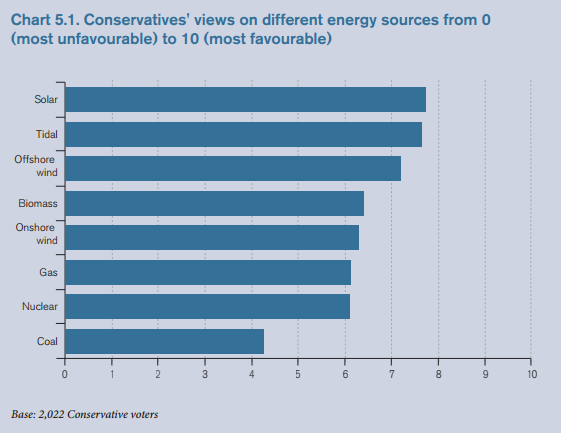
Solar PV is the favourite energy generation technology amongst Conservative voters, a new study conducted by think tank Bright Blue has found.
And the report – dubbed ‘Green conservatives? Understanding what Conservatives think about the environment’ – also found that Tory voters wanted the government to do more to encourage renewable energy deployment.
The right-leaning think tank surveyed nearly 2,000 Tory voters and found solar to be the most favoured energy generation technology with a mean favourable score of 7.7/10, narrowly beating tidal (7.6) into second place.
Perhaps interestingly given the Conservative Party’s manifesto promise to pull all support of onshore wind, that technology made it into the top five with gas, nuclear and coal the least favourite technologies in that order.

The report also concluded that the majority of Tory voters were proud of the UK’s historic support of climate and environmental initiatives, and 85% wanted the country to maintain renewable energy and energy efficiency targets post-Brexit, as these are currently set at EU level.
This extended to a majority of those surveyed wanting the current government to afford further support to the deployment of renewables despite the raft of cuts enacted shortly after the party’s election victory in May 2015.
Since then solar and onshore wind – the two cheapest renewable generation technologies according to the government’s advisory body, the Committee on Climate Change – have been subjected to various cuts in subsidies which have significantly stymied deployment.
The wider renewables lobby also remains in a state of flux after key policy announcements have been pushed back.
The future of the Levy Control Framework beyond the 2020/21 delivery year was expected to be confirmed at last month’s budget announcement but was pushed back until the autumn, while there has yet to be any concrete date set for the publication of the delayed emissions reduction plan.
The Department for Business, Energy and Industrial Strategy had yet to respond to requests for comment at the time of publication.
